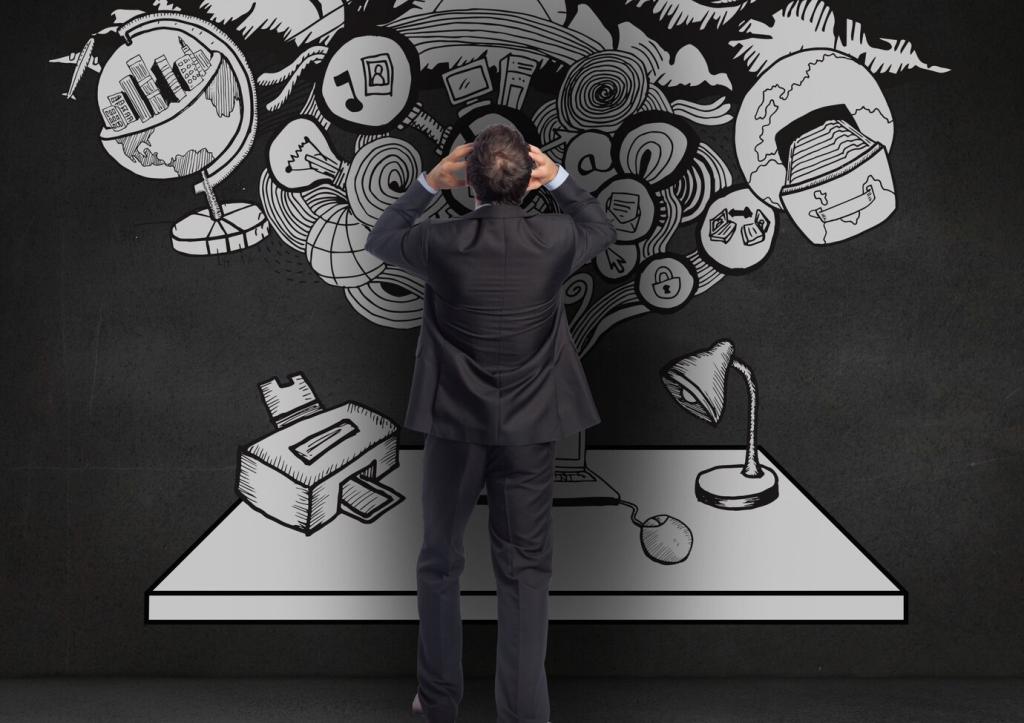Overcoming Setbacks: Emotional Resilience for Entrepreneurs
Entrepreneurship is a journey filled with both triumphs and challenges. For every breakthrough, there are often unexpected obstacles that test an entrepreneur’s resolve. Learning to overcome setbacks is not merely about persisting through hard times; it’s about developing emotional resilience—the ability to recover, adapt, and continue moving forward with purpose. Strengthening this inner resource is essential for long-term success, growth, and personal fulfillment in the face of adversity.

The Entrepreneurial Mindset
An entrepreneurial mindset is more than just optimism; it’s the foundation of emotional resilience. It helps entrepreneurs perceive challenges as opportunities rather than threats. Developing this mindset involves embracing change, staying flexible, and being willing to take calculated risks. Entrepreneurs with resilient mindsets understand that every setback provides critical insights that can refine their business strategies. They are less likely to view temporary failures as reflections of their worth, focusing instead on long-term growth and progress. This perspective not only fuels persistence but also inspires teams and stakeholders to remain engaged during difficult periods.

The Science of Stress Adaptation
Stress is a natural part of entrepreneurial life, but chronic stress can undermine decision-making and wellbeing. Emotional resilience equips entrepreneurs with tools to adapt positively to stressful circumstances. Research in psychology shows that resilient individuals activate constructive coping mechanisms, such as reframing problems, seeking support, and maintaining healthy routines. This adaptability reduces the impact of setbacks and speeds up recovery times. By acknowledging stress without becoming overwhelmed, resilient entrepreneurs protect their health and sustain high performance, even when external pressures mount.

Self-Awareness and Emotional Intelligence
Self-awareness is at the heart of emotional resilience. Entrepreneurs who cultivate a deep understanding of their emotions, triggers, and reactions are better equipped to navigate setbacks without falling into cycles of frustration or self-doubt. Emotional intelligence—the ability to perceive, use, and manage emotions effectively—enables leaders to remain calm under pressure, communicate transparently, and make more rational decisions when things don’t go as planned. By investing in self-reflection and mindfulness practices, entrepreneurs can build stronger emotional foundations for themselves and their businesses.
Turning Setbacks Into Opportunities
Learning from Failure
Failure, while uncomfortable, is one of the most powerful teachers in entrepreneurship. Emotional resilience allows individuals to process disappointment constructively and extract actionable lessons. Instead of dwelling on the negative aspects of setbacks, resilient entrepreneurs conduct honest post-mortems to identify what worked, what didn’t, and why. This learning orientation prevents repetition of mistakes and encourages iterative improvement. The capacity to learn from failure not only sharpens professional skills but also fosters humility and openness—qualities that attract investors, partners, and customers alike.

Building Resilience in Daily Practice
Maintaining Healthy Boundaries
Sustaining resilience in entrepreneurship requires clear boundaries between professional responsibilities and personal wellbeing. Entrepreneurs, especially in early-stage startups, often blur these lines, leading to overwork and burnout. Emotional resilience grows when individuals allow themselves time to recharge, engage in hobbies, and maintain relationships outside of work. This balance builds the mental reserve needed to address setbacks productively. By respecting their own limits, entrepreneurs model healthy behavior for their teams and reduce the risk of exhaustion undermining their business pursuits.
Seeking Support and Mentorship
No entrepreneur is an island—reaching out for support is a hallmark of emotional resilience. Cultivating relationships with mentors, peers, and advisors provides essential perspective and encouragement during challenging times. These connections can offer both practical advice and empathetic understanding, helping entrepreneurs feel less isolated when setbacks occur. Open dialogue with trusted confidants enables leaders to process disappointment, brainstorm solutions, and regain motivation. Over time, a robust support network becomes a critical pillar of resilience, reinforcing the entrepreneur’s ability to navigate adversity.
Practicing Mindfulness and Self-Compassion
Mindfulness and self-compassion practices help entrepreneurs manage anxiety and maintain equilibrium during times of stress. Mindfulness cultivates present-moment awareness, enabling clear-headed responses to setbacks instead of reactive decision-making. Self-compassion, meanwhile, involves treating oneself with kindness rather than harsh self-criticism when things go wrong. These practices foster healthier emotional responses, reduce burnout, and enhance creativity. Integrating mindfulness and self-compassion into daily routines can significantly improve an entrepreneur’s ability to stay resilient, adapt to change, and sustain passion for their work.
